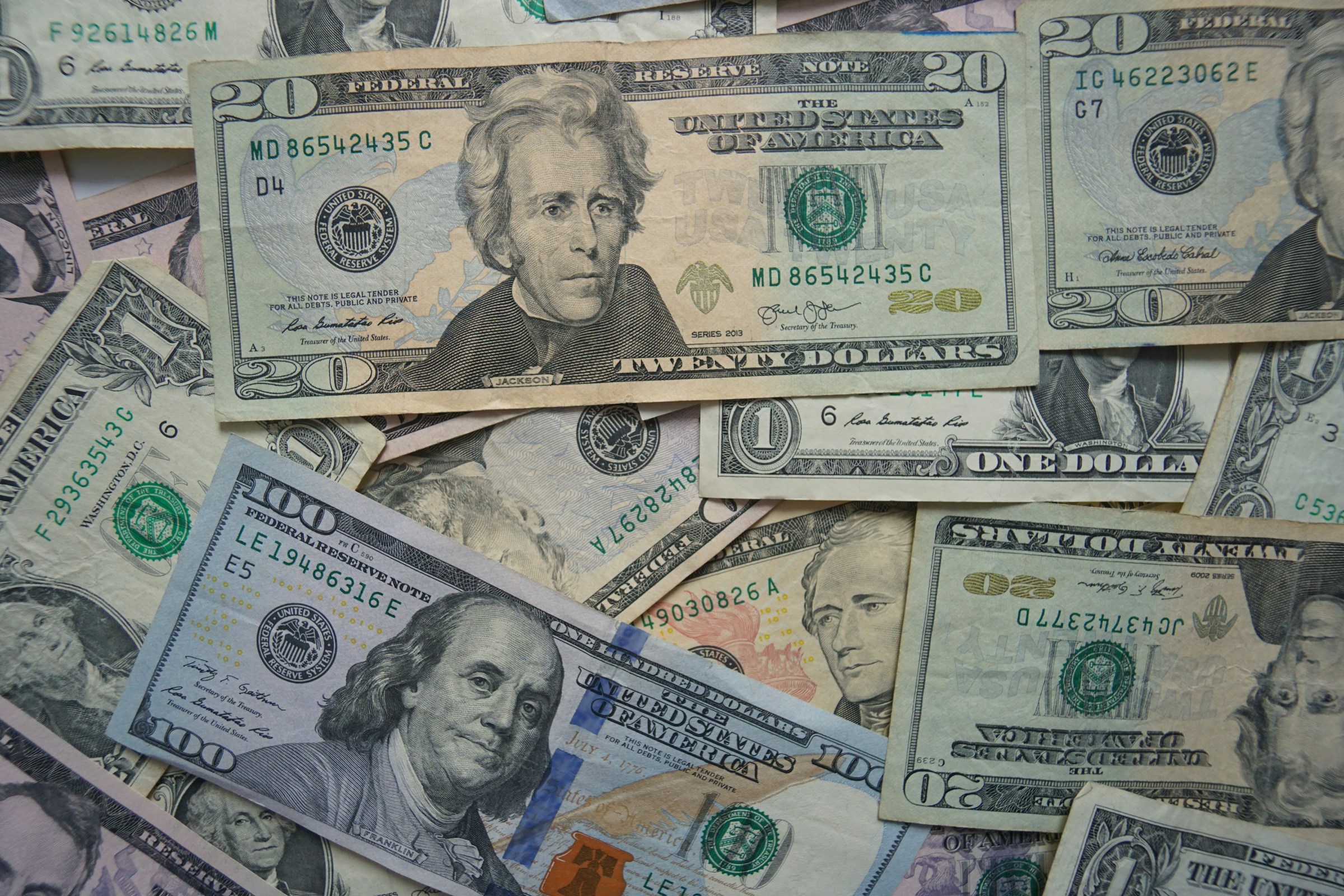You probably think cash is a vibe from your parents’ era. Your wallet is a card holder, your bank is an app, your budget lives in a spreadsheet you open only when the number in your head feels wrong. Still, the old school option keeps surviving every fintech wave. There are specific reasons, and they are not nostalgia. The benefits of using cash show up in places where software smooths friction so well that it also smooths judgment. Once you see that link, you can decide how much of your life should go tap to pay and how much should go paper to pay.
Start with the simplest truth. Cash is physical, and physical money creates a checkpoint your brain cannot ignore. When you hand over bills, your senses join the transaction. You feel the thickness of what you are giving up. You see your stash shrink. That moment slows you down just enough to ask if the purchase still feels right. Apps are built to remove that pause. Frictionless is great for things you decided on yesterday and terrible for micro decisions that add up. That extra pause, multiplied by thirty tiny choices a month, can be the difference between drifting into credit card float and finishing each cycle clean.
The second benefit is that cash keeps you inside a hard boundary. With a card, your true limit is a line of credit, not your plan. With a wallet of cash, when you hit zero, you are done. The line between want and cannot gets drawn by the amount you allocated, not by a bank’s assessment of your future. This is not about discipline as identity. It is about designing speed bumps so you do not need superhuman willpower. People think budgets fail because they cannot stick to them. Often, budgets fail because the tools are too slippery. Physical cash forces honesty faster than any notification.
Cash also changes how merchants treat you in the moment. Some small shops price in card fees even if they never say it out loud. Paying in cash can produce small discounts or at least a better conversation. In weekend markets, repair kiosks, and mom and pop cafes, cash feels like a clean exchange. Even when there is no discount, you sometimes get priority service or a small freebie because the owner sees a person who reduces their admin load. No promises, just a real pattern you notice once you start carrying bills again.
Privacy is a fourth, under rated benefit. Not everything you buy needs to show up as a permanent line on a data trail that trains a feed to sell you more of the same. Cash is not a shield from the world, but it is a way to keep small choices small. If you have ever scrolled an ad for the exact thing you whispered to a friend yesterday, you understand why a little anonymity feels like a luxury. When people talk about financial freedom, they usually mean returns and passive income. Privacy is part of freedom too, and cash is a simple way to buy a little of it back.
Now add outage resilience. Systems go down. Your banking app decides to update at the exact hour you need a ride. The network stalls at a stadium or a crowded festival. Your card gets flagged while traveling and you are suddenly the main character in a scene you did not ask for. The boring fix is to carry two cards from different rails. The smarter fix is to add a small cash roll for everyday emergencies. When the lights go out or the payment terminal throws an error, the person who has cash is not stuck. You will not use it often. You will be very glad when you do.
Cash also plays well with teaching and teamwork. If you want to help a younger sibling or a child understand money without loading a teen onto a gamified spending app, cash works like a lab. A simple weekly float creates visible tradeoffs. It is hard to reverse swipe a snack back into a wallet once it is eaten. That is the lesson. For couples who keep bumping into the same argument about grocery runs and takeout, a shared cash envelope for specific categories can remove the fight without requiring another meeting. The envelope goes empty, and that is the signal, not the partner.
Let us talk fees and perks, since the internet will remind you that points are life. Cards come with rewards that cash does not. That can be real value if you pay in full every month, if you track redemptions, and if you never chase a perk by inflating your spending. Many people are not that person. The ground truth is that card ecosystems hide costs in places you do not look often. You see the headline earn rate. You forget the silent fee creep on subscriptions that you are less likely to cancel because the charge does not feel painful. Cash flips the incentives. It makes recurring costs visible, which makes pruning easier. If rewards keep you diligent and debt free, amazing, keep them. If rewards make you a little sloppy, cash can be the detox that brings your scorecard back to net positive.
There is also a mental health angle that does not get enough airtime. Money anxiety loves ambiguity. When all your spending lives in pixels across three apps and two banks, you can feel weirdly poor even when you are fine. A small stash of cash in a labeled envelope called weekend or buffer reduces that background hum. You see money that is safe to use and you stop doom counting your checking account. Peace is a financial outcome too. The trick is to set a fixed amount, protect it from mission creep, and top it up at a predictable cadence.
Travel adds another layer. Street vendors, taxis off the main drag, local rail kiosks, and tiny museums sometimes shrug at foreign cards or add surprise surcharges. If your phone dies at 4 p.m. and your power bank is in the hotel, good luck paying for a bus with vibes. A pocket of local currency keeps your day moving. Console gamer energy is great when you are home. In a new city, you want redundancy, not style points. Even one or two rides worth of bills can bridge you back to charging outlets and stable Wi Fi.
Security is the usual pushback. Lose cash and it is gone. That is true. It is also the point. The same property that makes cash risky makes it clarifying. You treat it with care. You split it into pockets. You do not keep your entire month on your person. You build a tiny protocol and follow it. Cards feel safer, until one number leaks and a dozen test charges hit your account while you are at dinner. Both systems have risk. The best solution is to use both, intentionally, instead of defaulting to whatever your phone suggests first.
So how do you bring cash back without going full analog monk. Start by picking one or two categories that benefit from a visible cap. Groceries are a classic because baskets swell fast when you are hungry or bored. Eating out is another because a food budget is where lifestyle and convenience collide. Withdraw a fixed amount for the week, put it in a slim envelope, and carry only what you plan to spend that day. Keep your cards for bills, transit, and anything that needs a digital trail. If you run out of cash, you are done for that category until the next reset. No shaming, just a clean boundary.
Next, set a small emergency roll that lives in your bag. Think of it like a spare tire for your wallet. Enough for a cab home, a simple meal, and a pharmacy run. Replace it the next day if you ever crack it open. This is not spending money. It is an uptime guarantee for your life. The feeling of control you get from this tiny move is disproportionate to the cost.
If you share finances with someone, agree on cash rules you both believe in. Ambiguity kills goodwill. Decide which categories go cash only for the week, who withdraws, where you keep the envelopes, and when you top up. The goal is fewer messages about nickel and dime decisions, not a new set of check ins that feel like work. Keep it light. If it starts to feel like a ritual you resent, adjust the categories, not the person.
For the digital side, simplify. If you run a lean set of cards, you do not need to break up with them to use cash well. Set your autopays to one card, keep everyday taps on another, and avoid stacking a third unless there is a clear purpose. Review the autopay card once a quarter. Cancel what you do not use. If the idea of sitting down for a subscription audit bores you, swap the effort for a single rule. Any subscription that has not been opened or used for two consecutive months is gone. Cash will make those duds more obvious. When you see your weekend envelope shrinking, the subscription you forgot becomes the easiest cut you make all month.
There is a social piece to this too. Apps want to be the default because defaults are sticky. Friends expect splits in the same app because it is convenient. You can still be that friend who pays your share by transfer while choosing cash for your own budgeting boundary. No one needs a speech. When the group walks up to the counter, you hand your cash for your portion and move on. The quiet part is powerful. You are not recruiting anyone. You are just running your own system.
The benefits of using cash are not theoretical. You will notice them in your screen time, your pantry, your late night ordering, and your mood. You will also notice that you are not fighting your apps anymore. You are using them for what they are good at and ignoring the parts that tempt you into leakier habits. The hybrid plan is not complicated. Digital for bills, travel, big purchases, and anything that needs traceability. Cash for categories where impulse costs you the most and where a visible cap does the real coaching. Add a tiny emergency roll so outages stop being a crisis. Review once a month, not every night. Keep the tone friendly with yourself, because shame burns energy that would be better spent making dinner at home.
Money tools come with brand voices that try to win you over as a fan. Cash has no brand manager. It just sits there and works, as long as you set the rules. If you want to test this, do it for two weeks, not two days. Day one feels clunky as you relearn change and stops. Day five feels calmer. By day ten you will have enough data to decide which categories earn a permanent cash slot and which go back to your card. You will also have a clearer picture of what you actually value, because you chose those purchases with your hands, not just your thumb.
If your goal is status points and first class redemptions, cash will always look inferior. If your goal is a plan that quietly leaves you better off every month, cash is a cheat code you can turn on whenever life starts feeling too swipe based. It reroutes your attention to where money leaves most easily and gives you control without ten new hacks. There is no leaderboard for that. There does not need to be. The wins show up in your balance, your pantry, your calendar, and the part of your brain that stops keeping score at 2 a.m.
Use the tools you like. Keep the ones that make you better. Retire the ones that make you sloppy. Cash is not a moral test. It is a design choice. If you choose it with intent, even part time, you will feel the difference faster than any budget app can refresh.





.jpg&w=3840&q=75)








